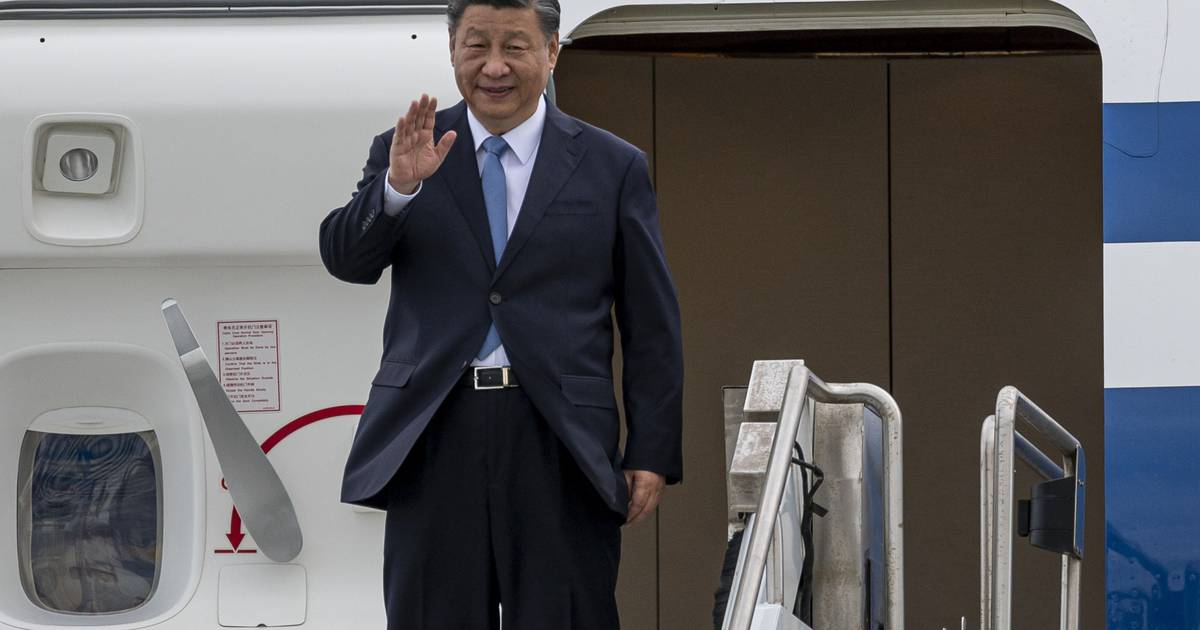Chinese President Xi Jinping has pledged to make it easier for foreigners to do business in his country, in long-awaited remarks at a major summit, as business confidence declines in the second-largest economy.
The Chinese leader promised that his nation would create a “world-class business environment” and improve mechanisms to protect the rights of international investors, in a written speech published Thursday at a CEO forum held in California.
“We will also take more ‘touching’ measures, such as improving policies for the entry and stay of foreign citizens in China,” he said, adding that would facilitate access to financial services, medical and electronic payments. “All of this is designed to make it easier for foreign companies to invest and operate in China.”
More friendly actions by Xi Jinping towards the United States
The normally stolid Xi has projected a softer, gentler side in San Francisco. Hours after reminiscing with President Joe Biden about his first trip to the United States 38 years ago, Xi publicly accepted an NBA team jersey from California Gov. Gavin Newsom on Wednesday and indicated Beijing would send pandas to American zoos.
Giving away pandas is a soft power victory that will likely resonate with the “American people,” a group Xi mentioned more than a dozen times in his Wednesday speech to big names like BlackRock’s Larry Fink and Blackstone’s Stephen Schwarzman. The tree of friendship of our people has grown tall and strong,” he said in typically poetic language. “It can surely withstand the attack of any wind or storm.”
Even as Xi extended an olive branch to foreign investors, organizers of the CEO summit announced Thursday that would not be able to attend the event in person and would instead deliver written comments.
The Chinese economy is slowing down, what does Xi say about it?
Xi makes his first trip to the United States in six years at one point critical: China’s economy is slowing after decades of high-speed growth, while strained ties with the West are scaring away foreign capital, while US technology restrictions and European trade investigations create an unstable environment.
China’s most powerful leader since Mao Zedong brushed aside those issuessaying the economy had been “improving” this year and had one of the highest growth rates in the world.
While the economy is on track to meet the government’s annual target of around 5 percent growth, A worsening housing market has fueled expectations that Xi will have to roll out more stimulus to keep things going.
The ruling Communist Party’s own policies have not helped reassure foreign investors in recent years. His abrupt policy changes hit some sectors, Covid controls closed borders during the pandemic and national security restrictions have stoked concerns among the foreign business community.
Xi’s speech at the Asia-Pacific Economic Cooperation summit appeared to address some of those concerns. His promise to promote the “free and orderly flow of data in accordance with the law” appeared to respond to new data laws that have sparked widespread anxiety about how multinationals might operate in the Asian powerhouse.
How does China work to ‘seduce’ foreign companies?
Hours before China released Xi’s written speech, an official at its Commerce Ministry said at a briefing in Beijing that authorities are waging a campaign to examine and eliminate possible standards and discriminatory measures against foreign companies.
“The goal is to create a fairer market competition environment for foreign-invested enterprises and stabilize their expectations and confidence in investing in China in the long term,” He Yadong said.
Trade Minister Wang Wentao will meet with his American counterpart Gina Raimondo on the sidelines of the APEC meetings to “discuss how to implement the important agreements reached by the two state leaders to resolve key issues in bilateral trade relations,” he added.
Xi’s speech on Thursday marked his most direct discussion of the Chinese economy at the event. His 30-minute speech to hundreds of executives on Wednesday night and his meeting with Biden later that day focused more on presenting China as a peaceful and relieve tension with Washington.
China maintains a “negative list” of sectors in which lForeign investors have their participation restricted or prohibitedsuch as mandatory education, news organizations, and the exploration and extraction of some metals.
Promises to reduce that number were nothing new. The government has revised the list downward each year from 2017 to 2021, loosening restrictions on industries such as securities, banking and auto manufacturing.
Amy Celico, a partner at Albright Stonebridge Group, who attended the Chinese leader’s evening with business heavyweights, said she believed Beijing had been waiting to assess whether talks with Biden justified more concrete action on trade issues.
“Certainly that’s what CEOs hope: that the groundwork was laid yesterday,” he said. “Now, let’s get to the real business issues where we need to see progress.”

